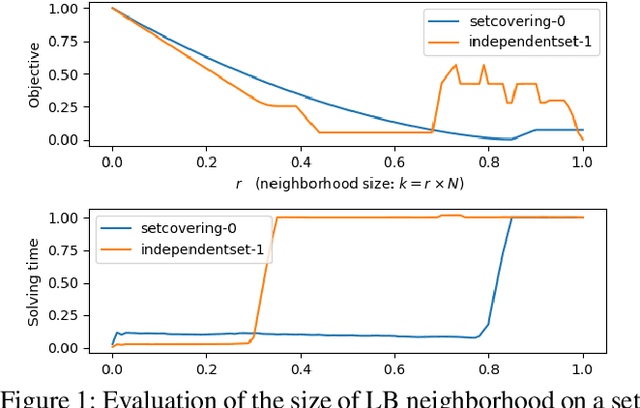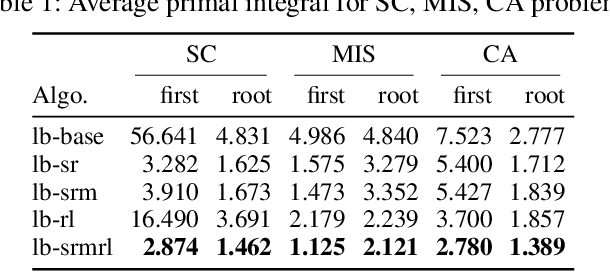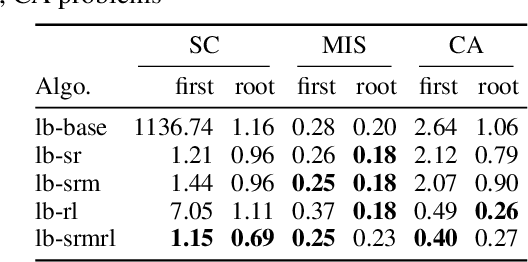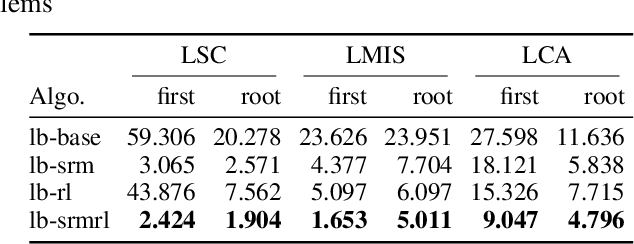Learning to Search in Local Branching
Paper and Code
Dec 03, 2021



Finding high-quality solutions to mixed-integer linear programming problems (MILPs) is of great importance for many practical applications. In this respect, the refinement heuristic local branching (LB) has been proposed to produce improving solutions and has been highly influential for the development of local search methods in MILP. The algorithm iteratively explores a sequence of solution neighborhoods defined by the so-called local branching constraint, namely, a linear inequality limiting the distance from a reference solution. For a LB algorithm, the choice of the neighborhood size is critical to performance. Although it was initialized by a conservative value in the original LB scheme, our new observation is that the best size is strongly dependent on the particular MILP instance. In this work, we investigate the relation between the size of the search neighborhood and the behavior of the underlying LB algorithm, and we devise a leaning based framework for guiding the neighborhood search of the LB heuristic. The framework consists of a two-phase strategy. For the first phase, a scaled regression model is trained to predict the size of the LB neighborhood at the first iteration through a regression task. In the second phase, we leverage reinforcement learning and devise a reinforced neighborhood search strategy to dynamically adapt the size at the subsequent iterations. We computationally show that the neighborhood size can indeed be learned, leading to improved performances and that the overall algorithm generalizes well both with respect to the instance size and, remarkably, across instances.
 Add to Chrome
Add to Chrome Add to Firefox
Add to Firefox Add to Edge
Add to Edge